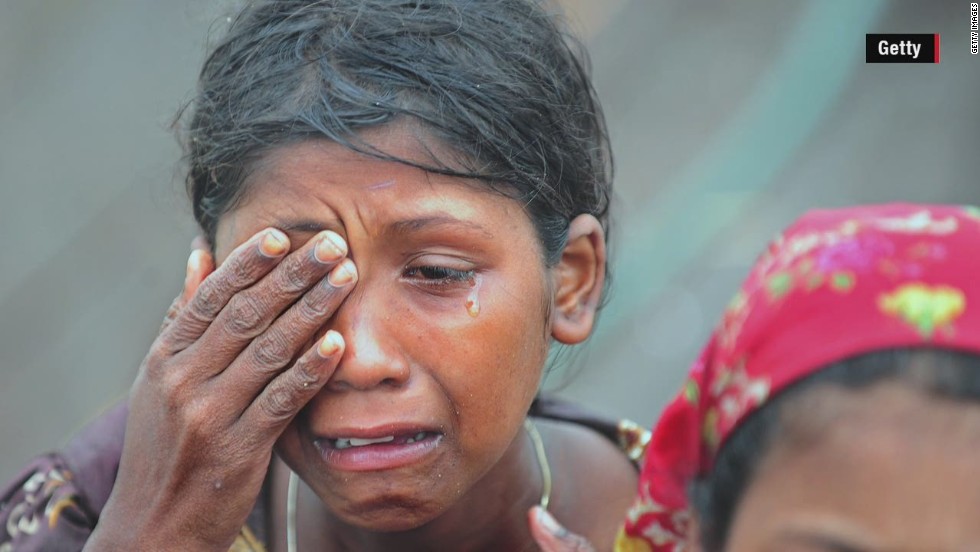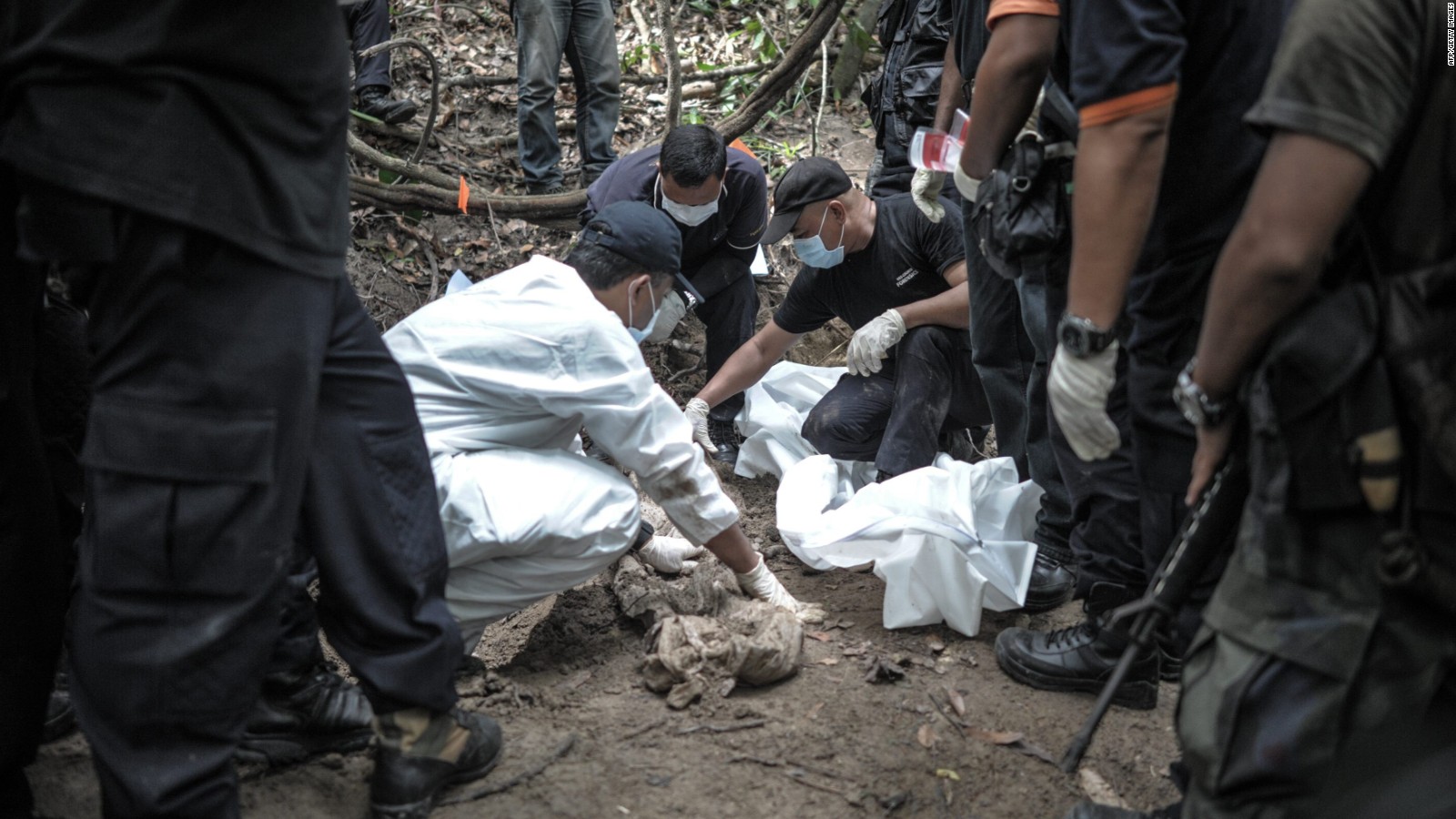Who's fighting human trafficking? U.S. releases rankings
(CNN)Cuba, Kenya and Saudi Arabia are doing better at fighting human trafficking. Egypt, Ghana and Bulgaria are doing worse.
That's
according to the latest annual report from the U.S. State Department,
which rates 188 countries on their efforts to stamp out trafficking in
persons.
Secretary of State John Kerry says the Trafficking in Persons (TIP) Report aims to enlighten, energize and empower activists fighting the "human trafficking industry" across every continent.
But
still, some of the 2015 rankings are controversial with rights groups
questioning whether politics has trumped that ambition.
Malaysia,
for example, has been upgraded, while Thailand remains on the list of
worst-performing countries. Both are part of of people-smuggling route
for Rohingya Muslims fleeing persecution in Myanmar.
Mass
graves holding the bodies of dozens of migrants were discovered in
Malaysia earlier this year, after the cutoff for this year's TIP Report.
The
report raises Malaysia to the Tier 2 Watch List from bottom-ranked Tier
3, where it fell last year, after two consecutive years of failing to
do enough to address the issue.
The
fall was an automatic downgrade, in compliance with rules introduced by
the State Department in 2013 that dictate a country has to move up or
down after two years on the Tier 2 Watch List.
Thailand
was also demoted for the same reason, but this year remains on Tier 3,
an apparent discrepancy for activists who were pushing for both
countries to remain in Tier 3.
State of human trafficking
The
U.S. State Department puts countries that do the most to fight human
trafficking in Tier 1, and the least in Tier 3. Tier 2 includes a Watch
List for countries in danger of dropping to Tier 3.
This
year, 18 countries were upgraded and another 18 were downgraded. Those
downgraded from the Tier 2 Watch List to Tier 3 included Belarus,
Belize, Burundi, Comoros, the Marshall Islands and South Sudan.
Penalties
for countries demoted to Tier 3 are at the discretion of the U.S.
President, but could include restrictions on non-humanitarian assistance
and funding.
Alongside Malaysia,
upgrades from Tier 3 to the Watch List included Cuba, the Democratic
Republic of Congo, Papua New Guinea, and Uzbekistan.
Kerry
said: "It is a battle against money. It is a battle against evil. It is
remarkable that in 2015 we face a modern-day version of slavery."
Mass migrant graves
Two
months ago, it emerged that deep in the jungle along Malaysia's border
with Thailand were abandoned makeshift prisons once thought to hold
migrants held for ransom by human traffickers.

The apartheid you've never heard of 02:38
Alongside
wooden cages were mass graves believed to hold the bodies of
Bangladeshi migrants and Rohingya Muslims fleeing Myanmar, also known as
Burma.
Similar macabre scenes had been earlier uncovered in jungle camps in Thailand,
after a series of raids by Thai police. On Friday, Thailand announced
it had charged 72 people with crimes of human trafficking and was
looking for another 32 suspects still at large.
In May, Malaysia hosted talks
with delegates from Thailand and Indonesia about how to address the
growing crisis of migrants trapped on trafficking boats off the coast.
Malaysia and Indonesia agreed to take the migrants in, provided they
were given help to resettle them with one year.
However,
the raids, arrests and talks came after the March 2015 cut-off for
consideration in this year's report, which will raise questions as to
why Malaysia was upgraded, yet Thailand remains on Tier 3.

Forensic teams exhume graves found at trafficking camps 03:30
Rights
activists point out that Malaysia is one of the countries in
negotiations with the U.S. as part of the Trans Pacific Partnership
(TPP) agreement. An amendment to the Trade Promotion Authority Act states a fast-track deal can't be done with a country that's on the Tier 3 list.
Phil
Robertson, Asia division deputy director for Human Rights Watch, said:
"Malaysia's record on stopping trafficking in persons over the past year
is far from sufficient to justify this upgrade from Washington.
Migrants are being trafficked and abused with impunity, Rohingya
victims' bodies are being pulled from shallow graves at the border and
convictions are down year on year. How can the State Department call
this progress?"
He added: "The
discussion on Malaysia is... a triumph of diplomatic writing trumpeting
process rather than impact. This upgrade is more about the TPP and U.S.
trade politics than anything Malaysia did to combat human trafficking
over the past year. Sadly, this action does significant damage to the
credibility of a report that is a critical part of global efforts to
combat slavery."
Before the report's
release, the Alliance to End Slavery and Trafficking (ATEST) said any
move to upgrade Malaysia would be "purely political and incredibly
detrimental to combating human trafficking in that country."
Meanwhile,
the Thai Ministry of Foreign Affairs released a statement saying its
ranking "does not accurately reflect the significant efforts" made over
the year. It said Thailand "translated its genuine political will to
combat human trafficking into practical policies, effective
implementation, and concrete results" calling the issue a national
priority.
It added Thailand had cracked
down on trafficking gangs and corrupt officials, and was tackling
slavery in the fisheries industry.
What the TIP Tiers mean
Tier 1: Governments fully comply with the Trafficking Victims Protection Act's (TVPA) minimum standards.
Tier 2: Governments do not fully comply, but are making significant efforts to bring themselves into compliance.
Tier 2 Watch List: Governments do not fully comply, but are making significant efforts to bring themselves into compliance, as well as other negative indicators.
Tier 3: Governments do not fully comply and are not making significant efforts to do so.
Source: U.S. State Department
Tier 2: Governments do not fully comply, but are making significant efforts to bring themselves into compliance.
Tier 2 Watch List: Governments do not fully comply, but are making significant efforts to bring themselves into compliance, as well as other negative indicators.
Tier 3: Governments do not fully comply and are not making significant efforts to do so.
Source: U.S. State Department
Other notable changes on this year's list:
Cuba's promotion from Tier 3 to the Tier 2 Watch List comes just a week after restoration of the country's diplomatic ties with the U.S., which were frozen in 1961.
After three consecutive years on the Tier 2 Watch List, Kenya -- where Barack Obama has just made his first trip since becoming U.S. President -- made
it back on the Tier 2 list. It follows last year's recommendation to
increase the number of prosecutions, raids and inspections of potential
trafficking hubs.
Saudi Arabia also made it off the bottom tier after making
progress in prosecuting offenders and protecting trafficking victims.
However, the 2015 report said that it was still not "proactively"
investigating and prosecuting employers for withholding workers'
passports and pay.
Of the downgrades, Belarus earned an automatic demotion to Tier 3 after two years on the Watch List, as did Comoros, an island off the coast of Eastern Africa, where the report says children are particularly at risk of forced labor.
Child trafficking is also considered to be a huge problem in Ghana,
which dropped to the Watch List from Tier 2. The country is set to
receive $5 million in U.S. aid to combat the problem after the signing
last month of the Child Protection Compact Partnership. The money will be used to pursue offenders, rehabilitate victims and educate the public.
Egypt also dropped to the Watch List, following its poor record of addressing the sexual exploitation of women and children. This
year's report said that while the country had set up a national
anti-trafficking hotline, its efforts to address the problem focused on
Egyptian nationals, not foreign trafficking victims.
Considered a corridor for men, women and children trafficked to Western Europe, Slovenia was downgraded from
Tier 1 to Tier 2. The report said that while the country was trying to
train law enforcement officers, prosecutions were at a five-year low and
there had been no convictions at all during the year.

ไม่มีความคิดเห็น:
แสดงความคิดเห็น